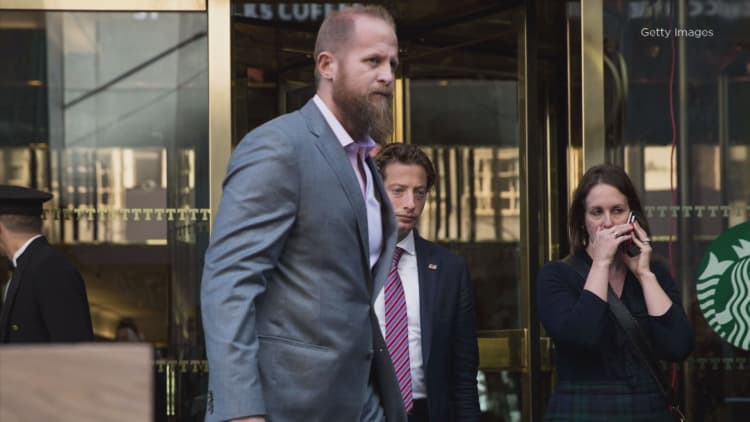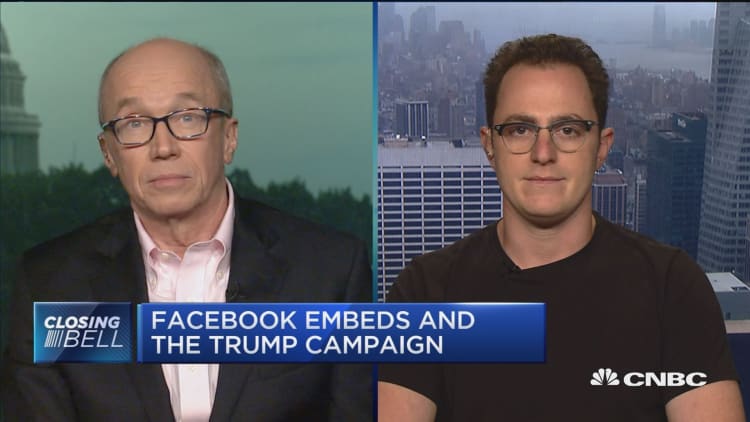
The Trump campaign's digital director credits Facebook in helping to fuel the president's surprising win last November.
In an interview with CBS News' "60 Minutes" that aired Sunday, Brad Parscale said Facebook "was the method" for President Donald Trump's stunning rise to the White House. Parscale, who spearheaded the small Trump campaign team's digital and fundraising efforts, contended that the team took advantage of Facebook in a way Democrat Hillary Clinton's campaign did not.
"Facebook now lets you get to places and places possibly that you would never go with TV ads," Parscale, web director at San Antonio-based marketing and design firm Giles Parscale, told CBS. "Now, I can find, you know, 15 people in the Florida Panhandle that I would never buy a TV commercial for. And, we took opportunities that I think the other side didn't."
He pointed to the Trump campaign having Facebook employees "embedded inside our offices" to explain how to use the platform to target voters. Parscale wanted Trump-supporting Facebook employees to offer guidance, and the company already had divisions "set up" by political affiliation, he said.
Parscale said he "heard" Clinton's campaign got the same offer but did not accept it.
In a statement, Facebook said it offered the campaigns "identical support" and had teams assigned to both Trump and Clinton. "Everyone had access to the same tools," the company said, adding that it did not let campaigns "hand pick" employees or assign its workers full time to Trump or Clinton.
"Both campaigns approached things differently and used different amounts of support," Facebook said.
CNBC could not immediately reach former Clinton campaign officials for comment.
Parscale also says the Trump campaign's focus on infrastructure policy gave it an advantage. As a candidate, Trump repeatedly pledged to pass a spending package to rebuild American roads, bridges and airports.
"It was voters in the Rust Belt that cared about their roads being rebuilt, their highways, their bridges. They felt like the world was crumbling. So I started making ads that would show the bridge crumbling," Parscale said. "You know, that's microtargeting them. Because I can find the 1,500 people in one town that care about infrastructure. Now, that might be a voter that normally votes Democrat." He says his company got paid $94 million for its work on the campaign.
Parscale, as part of the Trump campaign's push to target voters, has also faced questions about possible collusion between the Trump campaign and the Russian government. U.S. intelligence services have said the Kremlin orchestrated a campaign to influence the election, partly fueled by politically charged ads on Facebook.
Parscale told CBS he "would not want a foreign entity to meddle in our election." He called it a "farce" to say that he, personally, had any role in cooperating with the Kremlin.
WATCH: Should FB be treated as a media company



